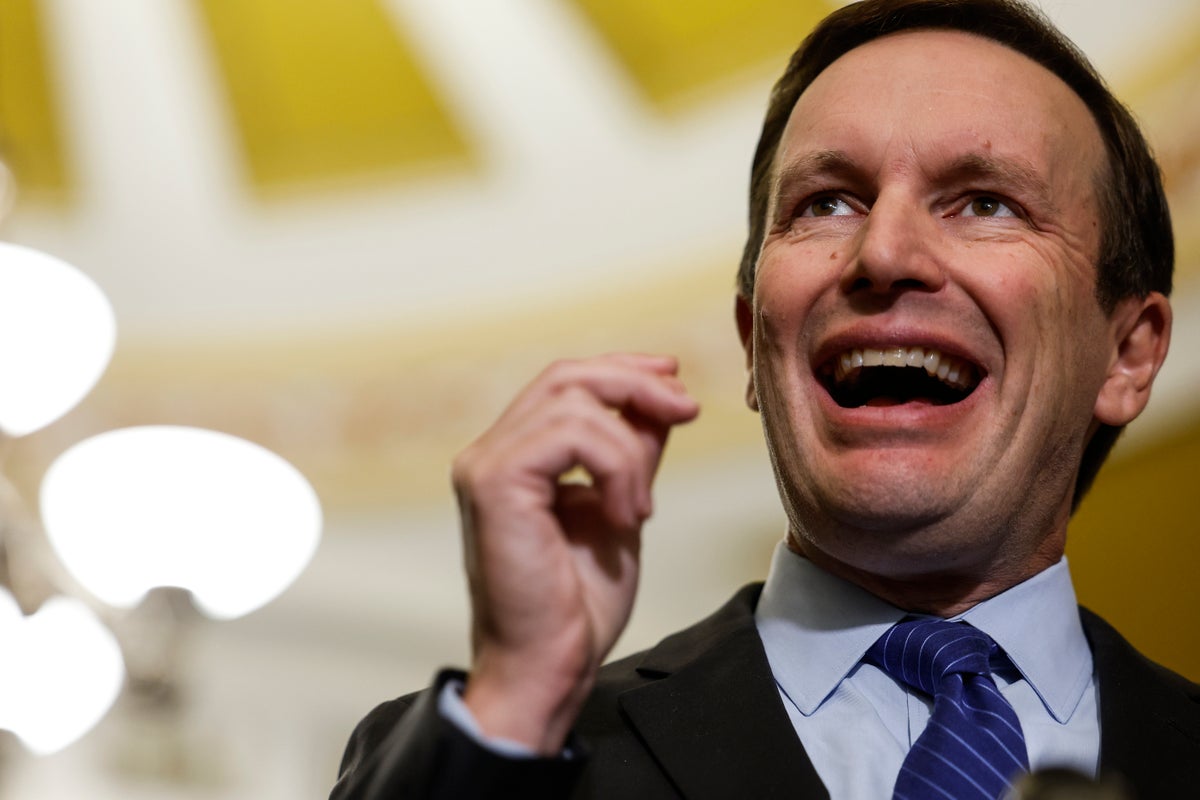
Senate Democrats are fuming over a Republican effort to link an aid package for Ukraine to a crackdown on immigration to the United States.
Senate Republicans want to tie aid to Ukraine to provisions that will restrict immigration, create more security measures at the US-Mexico border and change the asylum process. Republicans have focused on curtailing immigration, which they consider to be a “crisis”, and see funding for Ukraine as an opportunity to win concessions they otherwise would not receive from a Democratic Senate and White House.
But Democrats see the two topics as unrelated, especially as Ukraine faces a crucial moment in the war. Sen Chris Murphy (D-CT), after speaking with Sen Susan Collins (R-ME), told reporters that he was frustrated with the grouping of two unrelated issues when Ukraine’s security was jeopardised.
“I think it's ridiculous that Republicans are going to let Vladimir Putin march into Ukraine and perhaps the rest of Europe if we can’t solve a totally separate political issue,” Mr Murphy told reporters on Tuesday.
“I think we have been willing to give a lot in these talks. We are way out of (the) traditional comfort zone for Democrats. At some point, Republicans are going to have to say ‘yes,’” Mr Murphy said.
House Speaker Mike Johnson, in one of his first press conferences, told reporters last month that he wanted to tie border security provisions to Ukraine aid.
Aid to Ukraine passed easily in the previous Congress after Russian President Vladimir Putin launched his assault on the country in February 2022. Many Republican leaders in the US Senate, including Minority Leader Mitch McConnell, continue to support Ukraine. But conservative Republicans, including many acolytes of former president Donald Trump, ardently oppose supporting the nation.
Neither of the most recent continuing resolutions to keep the government open included aid to Ukraine. President Joe Biden had previously requested a $105bn supplemental bill from Congress that would have provided aid to Ukraine and Israel and would have also provided money to secure the US-Mexico border as well as money to compete with China.
That request largely went nowhere amid the inability of Republicans to nominate a speaker of the House. And many conservatives will likely oppose any agreement crafted by the Senate.
Sen Thom Tillis (R-NC), who is part of the negotiations, said that Mr Murphy and Sen James Lankford (R-OK), have made meaningful changes on asylum policy. But he said that he wants to see changes to parole, which allows for migrants to stay in the United States.
“But that's only a half-baked cake,” he told The Independent. “We've got to have progress on parole.”
In a dear colleague letter, Senate Majority Leader Chuck Schumer said that the Senate would take up a vote on a supplemental aid bill to Ukraine and Israel as soon as next week.
But Heritage Action, the advocacy arm of the conservative think tank the Heritage Foundation that holds sway over Republicans, said it would oppose any measure crafted by the Senate and would only support House legislation that would severely curtail asylum and detention laws for migrants as well as increase provisions for border security.
“House and Senate conservatives should reject this proposal and commit to supporting H.R. 2 to restore safety and security for the American people,” Heritage Foundation president Kevin Roberts said in a statement. “Anything less is unacceptable.”
Sen Ron Johnson (R-WI), a hardliner on immigration, told The Independent he would not allow for cloture, which would end a filibuster on any legislation that doesn’t have “strong enforceable benchmarks.”
“Because we have a president who wants to open (the) border,” he said. “He's a lawless administration. He doesn’t faithfully execute the law. So no matter how strong language is, with this president, would be meaningless unless you have funding contingent on meeting actual benchmarks.”
Mr Johnson said that he was not even sure that what he wanted was being discussed.
But Democrats still voiced their frustration. Sen Michael Bennet (D-CO), who expressed concern about the lack of support for Ukraine in the September continuing resolution bill that kept the government open, told reporters he continued to worry about the lack of support for Ukraine.
“Trying to tie the American people's support for this democracy to policy disputes or political disputes that we have in this moment, I think is incredibly short-sighted,” he said. “What happens if we don't find Ukraine is that Putin is going to be able to take back the territory that the Ukrainians have taken from him which was half of the territory that that he originally took from them.”






